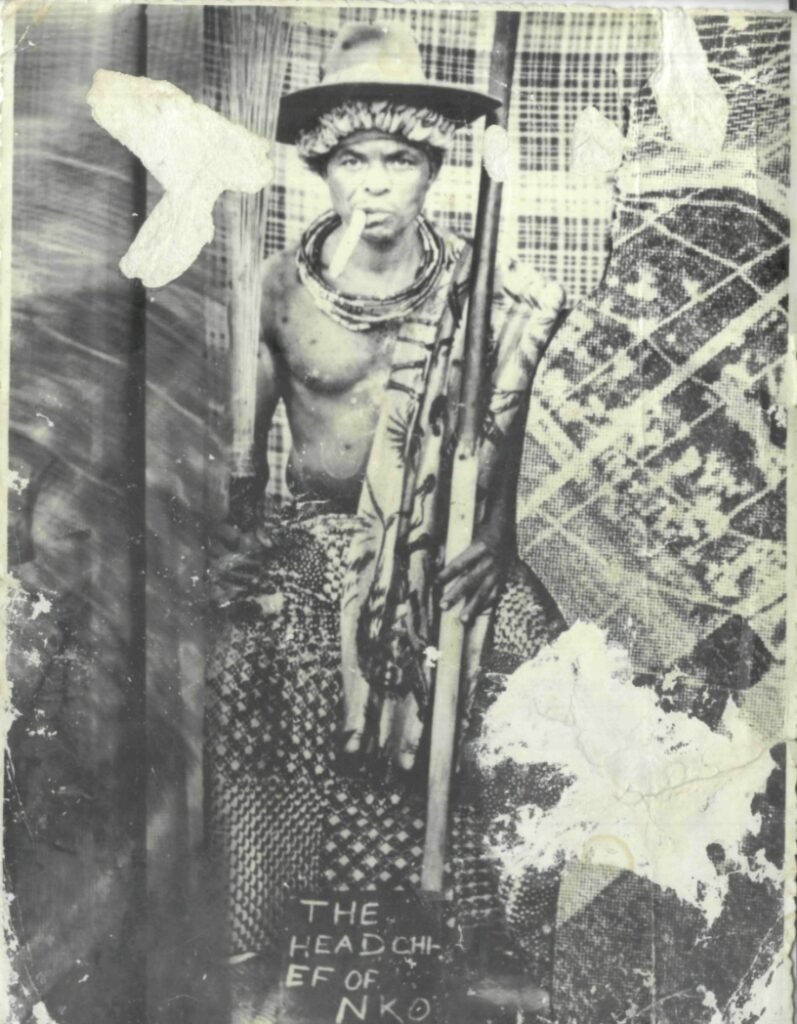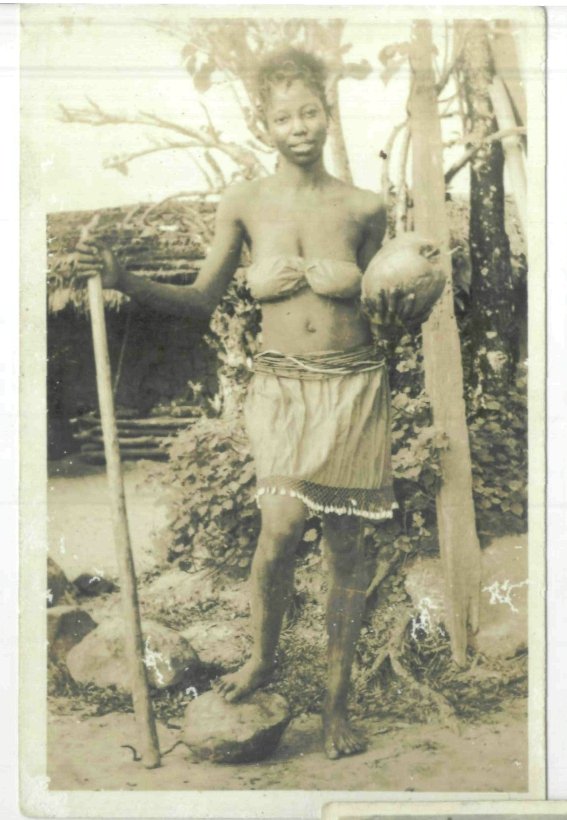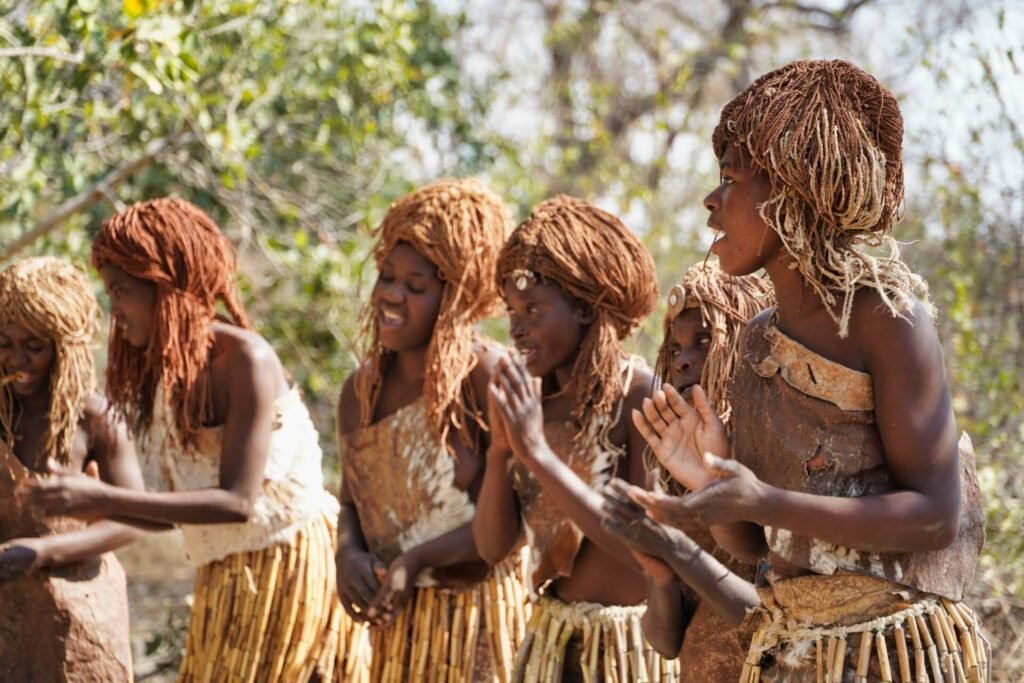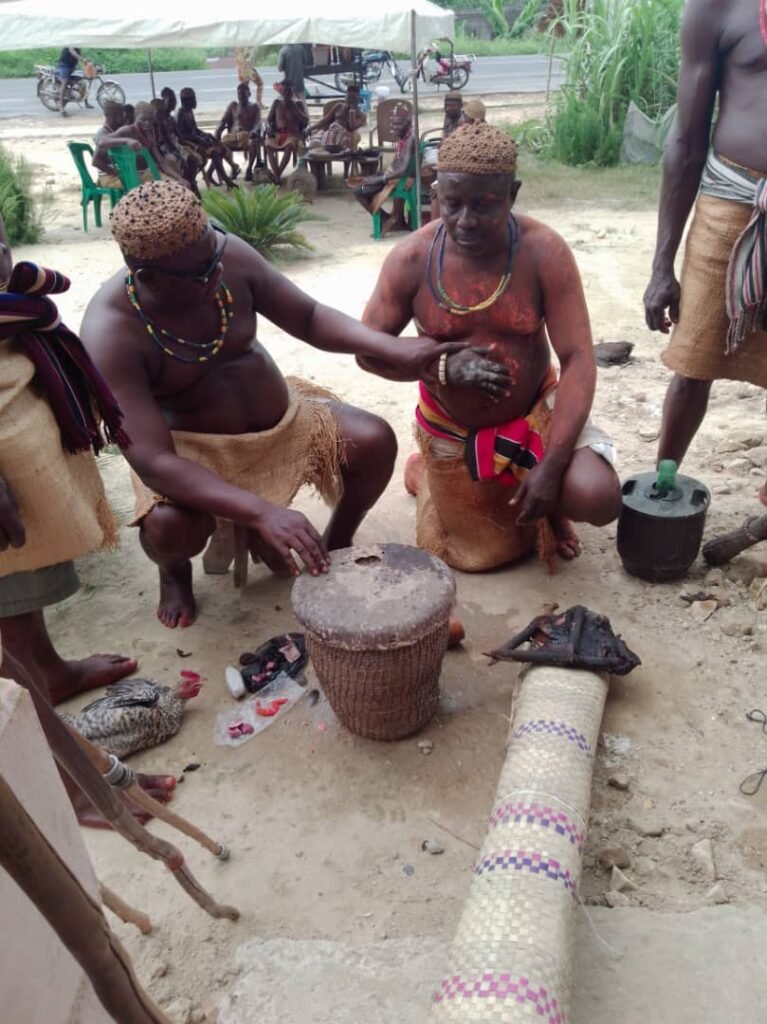UKPAWEN-NKPOLO
This is going to be a rigorous exercise for the scholastic readers because criticality will be given the open space to exercise logical evaluations.
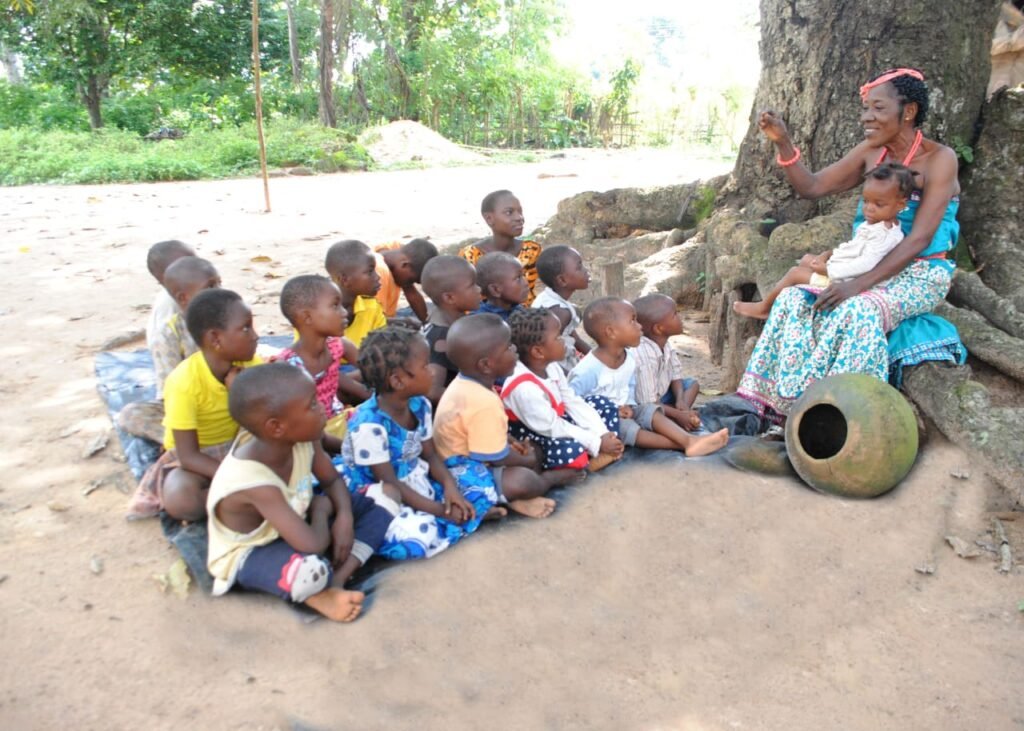
We actually thought this will be a simple subject to deal with but as the pen was placed on the paper, the narrations seem unending…
We must write, rewrite, discover, rediscover, construct and reconstruct every aspect of our history, theology, philosophy, etc using the necessary materials available and if we can not complete the task; which of course we know that nobody completes a vision, otherwise it is never a vision… our future scholars, theologians and philosophers will surely continue the narratives.
We are on this because a futuristic pattern needed to be designed for tomorrow.
What do you know about the NKPOLO clan of Yako people?
Amazing! The ancestral land of the Yako people (Umor; Yakurr Ibe… Mkpani; Ekoli; Ojor; Nko; Ilomi, etc) was Lekanakpakpa, which was geographically situated around the southwestern regions of Cameroon likely the same area were the Ibibio-Efik people first settled. It should be noted that the “Efik people are historically believed to the descendants of the Ibibio people. However Efik, Anang and other related tribes see themselves as different people” Dr. Monday Ntah and other historians.
The Yako people are likely descendants of the Ibibio; there is no doubt that today, we also see ourselves as different people from the Ibibio.
Yes! Our ancestral fathers all lived, married, intermarried, had children, carry out their businesses, spent their lives in caved and thatched settlements while in Lekanakpakpa.
The Nko people believed that the progenitor of NKO community was Nkoiya.
NKOIYA, did she truly came from heaven directly to the earth as the fictional narration holds?
The YAKO people: did they come from heaven directly to settle in Lekanakpakpa?
What lands or forests have they wandered into before they finally arrived and settled in Lekanakpakpa?
Do you also think the Yako prople are evolvement of the Ibibio or do you think the Yako people are evolvement of the Arochukwu people?
Historical folklores has it that the Umor, Nko, Ekoli, Yakurr Ibe, Ojor and Ilomi people lived as brothers and sisters of same mother while in Lekanakpakpa, isn’t it so? In the mythological studies of the Yako people, it is believed that the mother of Yako was princess OBIA, who gave birth to superhumans for which NKOIYA happened to be one of the superhumans.
Today, princess OBIA, Nkoiya, etc., are divinities of the Yako prople just like Obatala, Orunmila, Oduduwa, etc., of the Yoruba people.
There is this Yoruba mythology that holds that Oduduwa first resided in Mecca, before he left for Ile-Ife. Anyway, let’s focus on the narratives of the Yako people.
So, where do you think princess Obia first resided? We could partially agree, not conclusively that she did not fall from heaven…something or someone must have been used as a channel for her existence on earth. It wise to know that even Jesus Christ, the one the mainstream Christianity believed he is the Creator of mankind and all the things, was conceived and born into this earth by a lady called Mary, alleged to be a virgin.
So, who were the parents of princess Obia? Certainly she is a royal being, so her parents were likely rulers of the ancient tribes that left Nubia (Ethiopia) and first settled in the southwestern regions of Cameroon including Bakassi.
This ancient tribes were the Ibibio-Efik people. The Ibibio-Efik people are one people but could possibly be distinguished by their parental background and some features.
Importantly, the YAKO people should understand that they have a first class ancestral connection with the Ibibio-Efik people. Are you surprised?
You will not be wrong to use the adage: “ami eyen Ndem efik esien duopeba” which is interpreted as “I, the descendant of the Efik tutelary Ndem (God) of the twelve clans”. Although the Twelve clans later became Seven clans “esien efik itiaba”.
You are who you are today…I don’t mean to say that you should go and start looking for your Ibibio-Efik connection. No! You are already the evidence and connection of the Ibibio-Efik world. Our ancestral parents only drifted because they were adventurous and wanted to establish their separate kingdoms, and so today we have Umor, Ekoli, Nko, Nkpani, Ilomi, etc., as different kingdoms from same ancestral mother and world.
Every society desires to grow, even in the primitive era, numerically, politically (leadership), economically, socially and extensively (space).
Can you imagine today, the extent at which your community has grown? Check out the extent at which people have built houses even in the thickest forest, you probably once described as forest of NO VISIT or EVIL FOREST.
Even our primitive parents also ran with the vision of growth or expansion. This was how some of the people described as Ibibio-Efik drifted to the land called Arochukwu, Abia and settled their in the region called IBOM (name of one of the ancestor who pioneered the settlement) or MBOT ABASI kingdom and their leadership seat was established in Obot Okon Ita. The Mbot Abasi kingdom was located in the present area called Arochukwu.
It was the Aro-Ibibio war (Diobu and followers against Ibibio-Efik) that sent the Ibibio-Efik people out from IBOM and the region was now occupied by the Eze-Agwu or Ndi-Ngwa people, the NKPORO or Arochukwu people.
During the peaceful state of the expansion of Ibibio-Efik people to Ibom (Arochukwu); the ancestral parents still travel from Ibom to the southwest of Cameroon, vice versa, to carry out businesses, hunting, pay their love ones visits, etc.
Also, when Diobu and his followers arrived Ibom, the land of the Ibibio-Efik people (the current Arochukwu), they were received; relationship was built, intermarriage, businesses, etc., were peacefully carried out.
At this period Diobu and his followers, their Ibibio-Efik wives and children, and the Ibibio-Efik people in Ibom were all living as one family.
During this era of peaceful covering, Diobu and his followers could also travel down the southwest of Cameroon to do business, hunting, visits, etc.
This peaceful relationship kept AWUGO’S parents in Lekanakpakpa, a section of the southwest of Cameroon.
As destiny is fulfilled gradually, Obol Okoi met Awugo’s father, the Nkporo man and they became good friends.
You should not forget that the name “Nkporo” is an Ibibio-Efik word which means strength and warlike attributes of a buffalo. It was given to friendly set of Igbos that settled with the Ibibio-Efik people in Ibom, because of their warlike attributes and strength. Up till date, the Arochukwu people remain the most fierce Igbo tribe in wars.
You must understand that the Arochukwu people were not called “Arochukwu” or “Nkporo” from the beginning. Some people call them “Aro- Okigbo (Aro oke Igbo)” or “Aro of God (Chukwu)”.
It should noted that the Ibibio-Efik people called this set of Igbos “Nkporo” because of their warring and hunting skills. So, Awugo’s father was a skillful hunter and warrior.
You don’t need to be amazed if you come across any tribe in Abia, Efik, Benue, Yako, etc called “NKPORO” or any name that sounds almost like Nkporo, because these are areas where the Ibibio-Efik people have settled in the ancient times.
Hope you are still on the right path of the narration?
IBINIUKPABI (IBINIKPABI)…Maybe the modern Yako child does not know that the Arochukwu Supreme God is called IBINIUKPABI or Chukwu Abiama or Chukwu okike Abiama.
The Yako people called Him “Obase Ibiniukpabi”, isn’t it so?
The Ibibio-Efik people also worship Ibiniukpabi (Ibritan) and the God of the Sky “Abasi Ibom Enyon”, isn’t it so?
Afrotheologie is only trying to systematically help you connect to the true root of your Africanness.
The Arochukwu or Nkporo people will never forget to build the shrine of the Supreme God anywhere they settle or do business and render ritualistic sacrifices to Ibiniukpabi.
IBINIUKPABI was wrongly spelt by the Eurocentric slave merchants as “Ibini Ukpabi” and called the image of Ibiniukpabi “Long juju”…these aliens never loved Africa…so, they carried out their competitive wealth race in Africa. Racism…a competitive wealth and development race among the Europeans countries as against the well being of the African people.
These aliens are out to spoil everything that concerns our ancestral traditional religious system.
They gave us a wrong history about our people and our ancestors…how can Moses who used the Levi to kill thousands of the Israelites in the wilderness, killed an Egyptian, etc., be in heaven, shown at the mount of transfiguration, then our ancestors in hellfire…that is what they told us, isn’t it so?
How can John Hawkins, Leonard, Queen Elizabeth, etc., that killed or masterminded the killings of millions of Africans be in heaven, then our ancestors in hellfire?
These aliens did a lot of alteration in our history, writings, philosophies, theologies, etc.
This could just be what they did or another handiwork of the enslavers to alter the spelling of “Nkporo” to “Nkpolo”, just to deny us of our true history.
The Arochukwu people are fierce in battles …could this be another factor to connect the Yako people with them?
Maybe, the world will get to study the fierceness if the YAKO people in bsttles, when the entire Yako nations are united as ONE KINGDOM.
So, one could also link princess Obia to the ancestral family of Ibibio-Efik world that migrated from Egypt through the Nile river to Nubia, then you Sudan and finally settled in the mountainous southwest regions of Cameroon, a region they called USAK EDET (Afaha lineage).
The Usak EDET (Isanguele) are a subgroup of the EKOI (Ejagham) people.
You might have studied other versions of this historic migration but the uniqueness or relationship they all share is that, the people finally settled at the mountainous southwestern regions of Cameroon before they eventually expanded to Ibom (present Arochukwu).
It should be noted that the word “Aro” was used to denote the weapon used to defeat the Ibibio-Efik people…Arochukwu (weapon or spear of God).
One would also not be logically wrong, if NKOIYA of the Nko people is genealogically traced to the Arochukwu family, since the set of the skillfully warring Igbo people (Diobu and his followers) that arrived and settled with the Ibibio-Efik people in Ibom, lived with them for about Four hundred years before the separation due to severe conflict.
Diobu and his followers might not necessarily be the ones involved in the Aro-Ibibio war but it is obvious that over the years of peaceful coexistence, Diobu and his followers must have produced or cloned their kinds, in warring and hunting…the very reason why the Ibibio-Efik people in Ibom called them “Nkporo”.
The army of Diobu (Arochukwu) is made up of Ohafia, Abam and Abiriba warriors…one important attribute of the Arochukwu or Aros was that in all their battles, they were never interested in conquering and ruling territories. Their sole aim in life, was to do business and spread the gospel of Chukwu Abiama or Ibiniukpabi.
You must understand that before the advent of Christianity, they were people passionate to spread the Goodnews of the Supreme God and divinities of our ancient…it is amazing that “Afrotheologie” has been birthed for long…with this ancient vision of the Arochukwu people, I wouldn’t be ashamed as a true son of the Yako soil, if I choose to connect my ancestral trace to the Arochukwu people.
It should be noted that the Nkporo people are NOT all Igbo because during the about Four hundred years of coexistence (Igbo and Ibibio-Efik), a lot of progenies were produced as products of intermarriages and these progenies dominated and populated the Nkporo tribe.
So, the historians or scholars that hold that the Nkporo or Arochukwu people evolved from Ibibio-Efik tribe, are not wrong in their submission.
The ancient man was also never tired of moving from one place to another…do, Awugo’s parents left Nkporo to settle in Lekanakpakpa, where they met Obol Okoi.
When Awugo’s father died, Obol Okoi adopted the little Awugo and during the era of migration from the ancestral land; Awugo followed his new father. Before the migration, there was a good relationship between the Nkporo, Ibibio-Efik and Yako people living in Lekanakpakpa.
Whatever that must have caused or propelled their migration; do you think AWUGO was the only “Nkpori” or “Arochukwu” man or person that left the ancestral land with the Yako people?
Obviously the answer is NO…just like the experience of July 2022, when the Nigerian Army invaded Nko, according to the Nko man’s point of view, both the indigenes and non-indigenes all ran into the forest, isn’t it so?
So, logically, Awugo was not the only Arochukwu person that migrated with the Yako people but he seems to be our focus in the Yako history because of the person he became and the leadership role he fulfilled around the Sixteenth century.
Some other non-Yako people joined the movement and they eventually became the Yako people. The truth is that, there are still some families in our different communities, that unless a record keeping elder tells you about their genealogy, you would never know that they are not by birth Yako people. But by rational and logical submission, they are Yako people.
The level at which we have studied the Yako man in respect to procreation, it is also certain that some of the ancestral fathers must have had progenies from the neighboring tribes which include the Arochukwu, Ibibio-Efik, Okoni, Ekoma (Ikom), Ofutop, etc and these children at their respective ages must have followed their Yako fathers during the migration from Lekanakpakpa. A true YAKO father will not leave his DNA or blood outside his control to suffer, isn’t it so?
So, the universal set of individuals that left the ancestral land comprises of subsets of individuals that were not Yako and the ones that were Yako by birth completely or partially.
It should be noted that the four major settlements of Yako people in Lekanakpakpa (southwest of Cameroon, the same geographical region the Ibibio-Efik people settled) were: Umorwen (comprises of Yakurr Ibe and Ilomi); Ekolikpana; Elige (Nko); Ojor.
It seems even the “Nkpolo” man does not know the etymology of the word “Nkpolo” unlike “Nkporo”, so the meaning is unknown to him, isn’t it so?
The narration continues as we systematically break some hidden codes that runs on the imaginary lines that define the Yako world. If you have not read the article one of “UKPAWEN-NKPOLO”, you will need to do so, otherwise this article you are reading will over stress your reasoning faculty.
Let’s quickly deal with the word “UKPAWEN”. The Yako people have their unique way of using and applying words to denote singularity and plurality.
For instance:
- Oponen (singular)… kinsman / Yaponen (plural)… kinsmen
- Wenamuka (sing)… matrilineal relative / Benamuka (pl)…matrilineal relatives
- Wenuwor(sg)…patrilineal relative / Benuwor (pl)…patrilineal rrelatives
- Epla (sg)…market / Npla (pl)
- Oplawen (sg)…small market / Yaplaben (pl)
- Yanen (sg)…woman / Banen (pl)
- Odom (sg)…man / Yadom (pl)
- Wenmonu (sg)…young woman/ Benmonu (pl)
- Wendom (sg)…young man / Bendom (pl)
- Ebla (sg)…dog / Nbla (pl)
- Ebu (sg)…goat / Nbu (pl)
It should be noted that “EBU” is also the name of individual but in the case of an individual, it is simply the shortened form of the ancestral word “Eburutu” which mean dignity. So, “Ebu” or”Ebu-ndu” denotes a dignified individual. Usually, it is given to the first sons like “Akpan”.
It should be noted quickly that the word “Akpa” means “First/Initial/First area of settlement”. “Akpa” happens to be the shortened form of “Lekanakpakpa” and it is the name of the first ancestral father that discovered the ancestral land and led others (Ibibios) just like the first Ibibio man to discover or settle in the land called Arochukwu, before leading others into the land was called Ibom or Iboku or Gibbom and the land was called IBOM (currently Arochukwu, Abia)
People bear these names these days without necessarily knowing the meaning.
Afrotheologie is out to systematically add values in this areas of the Yako lives and generally to promote Africanness, spirituality and religiosity of the African people.
If you have any unique facts about your community or society, that you feel it’s ideal for the world to know or you want us to research on, we would sincere appreciate it.
Afrotheologie comments the scholastic efforts put in by Chief OKOI OBONO-OBLA and the question asked by Mr FRED UGURU, that has pushed us this far.
So, names like Akpan, Ebu, Ebundu, Ibom, etc are usually given to first sons.
We have seen “Akpa” in many names and this include:
- Akpama…Akpa + ma(Mma)
- Akpabio…Akpa + bio (Obio)
- Akpabuyo…Akpa + buyo (Ibibio)
- Lowoni (sg)… space or open space / Liwoni (pl)
- Lowoniwen (sg)…small space / Liwoniben (pl)
- Lukpal (sg)… dedicated space / Yakpalben (pl).
- Ukpawen (sg)…small dedicated space / Yakpalben(pl). This would have been “Ukpaben” but it sounds odd, isn’t it so?
It should be noted that some Yako scholars hold that “LUKPALWEN” should be the word for small dedicated space instead of “UKPAWEN” whereas, majority of the Yako scholars and elders hold that “Ukpawen” is the correct word for “small dedicated space”.
As an Afrotheologian, looking at Lukpal-wen and Ukpalwen, logically both words have the same message to pass or signal to the receiver.
Also the fact that the majority of the people subscribed to “Ukpawen” does not define its trueness and the wrongness of “Lukpalwen”.
We should also not forget the fact that “Ukpawen” as the spelling goes might be the way the Eurocentric invaders spelt “Lukpalwen” in their documents, since they did same act of error or mistake to some of the names of our communities and today we have scholastically accepted these mistakes as the trueness of our communities and we have failed to teach our children the trueness of these histories.
For instance, they wrote:
- UMOR as Ugep
- EKOLI as Ekori
- YAKPANIKPANI as Mkpani
- ILOMI as Idomi
Hope one day in the future, someone or our children will not say that “UMOR” and “UGEP” are different people or meaning just like the case of “Nkporo” and “Nkpolo”.
But also considering the fact that the Eurocentric invaders came to Africa for the business of colonization, extortion and slavery NOT to give our father tongue a complete change even when that is a factor in colonization; we could then say that the colonizers might not have altered the spellings and if there was an alteration in its essence, then, it is probably an error or mistake put down by a Yako man or settler, which has become accepted generally.
These colonizers and indigenous error factors might be one of the factors that has affected “NKPORO” that we see today as “NKPOLO”.
NKPOLO
“NKPORO” means strength and warlike skills as that of a buffalo. So, what is the meaning of “NKPOLO”?
Putting the first narration into logical submission, we could say that “Nkpolo” is the same as “Nkporo”.
Accepting this logical trueness of “Nkpolo” being the same as “Nkporo” does not make the “Nkpolo” man an Arochukwu or an Ibibio man but historical facts has shown that the Yako people are descendants of Ibibio and we have studied the first classed relationship that exist amongst the Ibibio, Arochukwu, Yako, Igala, Mbaise, etc.
The truth is that looking at our histories, values, cultures and traditions carefully, you will know for sure that we are all descendants of one family or we all ancestrally hailed from one geographical region before the split or different paths to establish different kingdoms.
So, if you see an Mbaise man bearing name of Yako people, that isn’t a mistake, the name defines his ancestral root.
If the Yako man bears the name of the Arochukwu people, for instance ABAM, which happens to be a tribe that aided Diobu alongside with Ohofia and Abiriba to defeat the Ibibio-Efik people in Ibom…it is not a mistake.
Names define our roots! It is like a son who has been so alienated that he detest the ancestral system of his land but still has the SURNAME in all his certificates and even bears and accepts it, if he is addressed by it.
If you don’t respect your ancestral system, then, STOP USING THE SURNAME.
We are all one people!
It might be true that the people of “Nkpolo” in Nko are not Arochukwu people but etymologically, the word “Nkpolo” does not have Yako root…it is an Ibibio-Efik word “NKPORO” which was spelt in the manner it is today and probably pronounced by the aliens or Eurocentric invaders that way.
The fact that we have accepted it that does not deny its trueness etymologically. NKPOLO is the same as NKPORO. NKPOLO also has the same meaning as NKPORO.
It would have been so easy and amazing to deal with this subject without stress if the originator of the idea of naming that region of NKO was to be alive and he never left any record or document to tell the future researchers the reasons behind the name.
Anyway, if he had done such, then, this vast research would have become a microscopic type. Today, we have exercised our brains on this topic because the originator never gave us records.
Today, with the careful study on this subject, we now know that NKPOLO IS THE SAME AS NKPORO.
Thank you for arriving at this point of study. You are a true African child with complete Africanness.

